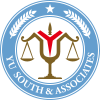 Employ American Workers Act Implementation Details Out:
Employ American Workers Act Implementation Details Out:
March 27, 2009: Employ American Workers Act (EAWA) is now in full implementation and with an immediate impact affecting all H-1B US employers in the following way:
- Even if you are not receiving any covered fund under Title I or Section 13, you are still affected because the rule governing H-1B filing is now being revised;
- If your organization does receive certain special federal funding under either TARP of Title I or Section 13 of FRA and continue to sponsor new hires of foreign nationals in the H-1B category, you must come into compliance on all new H-1B filings effective immediately.
Our office sent out a news alert to all our past and existing clients who might have received any form of federal funding under Title I immediately after the EAWA was signed into law by President Obama in February, exactly one month ahead of this most recent official announcement made by the USCIS. We are now sending this courtesy update to you as a follow-up on the previous mailing as well as the explanation of the new rules that were just announced by the USCIS.
According to this latest announcement by USCIS on the “New Requirements for Hiring H-1B Foreign Workers,” quite a few changes are taking place effective immediately. Those changes are across the board and some of the new requirements will immediately affect your next H-1B filing instantly, regardless whether you or your organization is a recipient of TARP Fund or NOT.
It is so, because the USCIS is now revising the current Form I-129, Petition for Nonimmigrant Worker, a principal document that we use to file all your H-1B petitions no matter if they are cap exempt or subject and regardless if it is a new initial petition or an extension of an expiring H-1B status. Specifically, the revised new Form I-129 will include a question asking whether the petitioner has received covered funding and it will be available before the next cap subject H-1B filing period that begins on April 1, 2009.
Further, as now we have learned, the TARP Fund, although also created under Title I, was primarily intended for financial institutions and therefore most school systems are not affected because they are not the actual recipient of such special funding. Besides, US government also has a public listing of all the names of the companies that have received TARP Fund. However, this new EAWA law also included the funding under Section 13 of Federal Reserve Act and there’s no public listing of such Section 13 funding recipients. So, it is always safe to check with your management in charge of finance and/or human resources to make sure that your organization has not received any Section 13 funding either. Regardless, your future H-1B filing is affected, to start with the new revised Form I-129 as announced.
This new announcement calls for an urgent need for our past and present employer clients to be fully updated on the exact requirement, with the new revision to the existing Form I-129 and LCA in particular, and with an anticipated rush of H-1B cap subject filing to pour in starting on April 1, 2009. As an included client service, Yu, South & Associates is posting this article here to summarize the gist of the latest USCIS implementation rules established by the new EMWA law, as follows:
- Any company or organization that has received covered funding and seeks to hire new H-1B workers is now considered an “H-1B dependent employer;
- All “H-1B dependent employers” must make additional attestations to the US Department of Labor (DOL) when filing the Labor Condition Application (LCA) which, for your information, is the prerequisite step in preparation and before filing an H-1B petition with the USCIS;
- Such a requirement, if applicable, applies only to the NEW hires and all current existing employees are not affected whether they are currently working on an existing H-1B or any other forms of employment authorization who would seek a change of status from those other types of employment authorization to that of a new H-1B.
- When applicable, any previously signed or completed cap-subject H-1B packages waiting to be filed on April 1, 2009 using the previous Form I-129 (January 2009 version) need now to include the new page in the revised version of the Form I-129 (March 2009 edition) which contains the new EAWA attestation requirements.
If you have any further questions about this article or the exciting dynamics of the seemingly simple process yet ever changing by each passing day, now coupled with the government’s new edition of petitioning forms, please do not hesitate to contact our office or you can simply click here to send your inquiry email directly to us at:
To read our original posting directly related to this article over 37 days ago regarding EAWA and its potential impact on H-1B filing when it was first signed into law by President Obama on Feb. 17, 2009, please look to the left column for the article titled "US Employers Be Aware: H-1B Filing Seriously Affected by the New Stimulus Plans, for 2 Years!" or, simply click on the title to go directly to the article.
For the exact wording of the original government explanations, you can read the actual announcement made by the USCIS by clicking on this link here: http://www.uscis.gov/files/article/H-1B_TARP_20mar2009.pdf
Thank you.
Yu, South & Associates, Where YOU Matter the Most.
